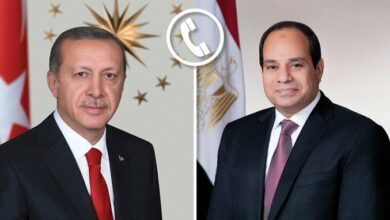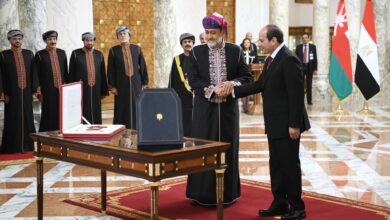
Egyptian President Abdel Fattah al-Sisi says that Donald Trump would "no doubt" make a strong leader.
The comments come as part of a sit-down interview with Erin Burnett, during which el-Sisi seemed to downplay a ban on Muslims entering the United States that, at times, served as a centerpiece to the Republican presidential nominee's political rise.
"During election campaigns, many statements are made and many things are said," noted el-Sisi, who has met with Trump. "However, afterward governing the country would be something different."
To this end, Burnett inquired Wednesday as to whether Trump's oft-outrageous rhetoric should be seen as simply a stump talking point.
"It sounds like you think Donald Trump is saying what he needs to say to be elected, but that he might not follow through with the plan," said CNN's "OutFront" host.
In response, the Egyptian leader elaborated on his initial point, noting the difference between a nominee and, ultimately, a president.
"During election campaigns there is a perception based on a certain vision and a point of view," he said, speaking through the aid of a translator. "Then that vision or point of view gets corrected and develops as a result of experience, reports and advice from experts."
During Burnett's conversation with el-Sisi, she inquired as to his feelings on Trump's opponent.
"Do you think Hillary Clinton would make a good president," she asked, referencing a woman that el-Sisi has met with on multiple occasions.
"Political parties in the United States would not allow candidates to reach that level unless they are qualified to lead a country the size of the United States of America," he said of the former secretary of state.
In the past, Clinton has referred to Egypt as "basically an army dictatorship," comments Burnett asked the nation's current president to respond to.
"In Egypt there will not be a chance for any dictatorship because in Egypt there is a Constitution," el-Sisi said. "There is law, and there the will of the people which will refuse to allow any leader to stay in his position for any period longer than his term, which is four years."




